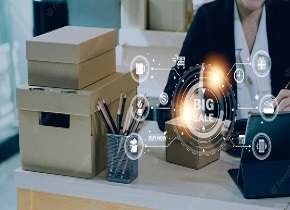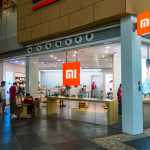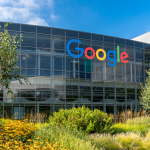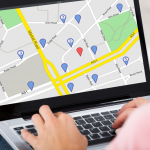Effects Of Digital Technology On Retail BPO Solution

Retail BPO Solution has undergone a major upheaval in the previous 15 years. Affecting how businesses present their items to customers who have altered their buying patterns. Customers now have higher expectations for the quality of the goods they purchase. As well as for the brand to be sustainable and to allow them to shop whenever and wherever they like.
Retail BPO Solution Digital Transformation
Customers now have a plethora of consuming alternatives thanks to the internet and mobile technology. Giving them access to goods without regard to place or time. A Spanish technology and digital firm called Vector ITC claims that this transformation has compelled merchants to adopt new technologies more quickly. According to data from Gartner, Retail BPO Solutions spent 203.6 billion dollars on technology globally in 2019.
In light of this, prominent businesses have been forced to invest heavily in online platforms, supply chain optimization, and internal and external digital transformation. By doing this, the businesses hope to implement the benefits of electronic commerce within their physical storefronts, thereby developing the idea of the “Smart Store.” BPO Company still struggles with issues like supplier integration, which falls short of its technology capabilities. Small and medium-sized businesses, on the other hand, have a significant issue because they lack the funding for large-scale initiatives.
Data Exploitation And Analysis
Customers want personalization and a seamless transition between online and offline experiences. With the exception of the huge Big Data initiatives, which are still in the research and implementation stages, data exploitation and predictive analytics are already completely established in Spain. Our ability to hyper-segment customers and create plans and campaigns that are specific to each consumer is made possible by the technology used for this purpose. Additionally, predictive analytics enables businesses to foresee consumer preferences, trends, and behaviors.
Machine Intelligence
This technology is essential to the retail industry. Because it makes it possible to automate procedures, cut costs over the long run, and enhance customer satisfaction. Examples include the use of digital assistants or chatbots, the execution of intelligent campaigns, and the improvement of product delivery times. Other examples include logistical optimization in stock management. Companies will be able to develop the insights required to give users an optimal purchasing experience. And increase customer loyalty once they have all the information obtained from the customer.
Network Of Things
A Grand View Research report predicts that this segment’s IoT software market will expand significantly, reaching a revenue share of more than 40% by 2025. This expansion can be due to the expanding use of Retail BPO Solution software to track consumer behavior. Retailers have enhanced their procedures through the use of clever electronic devices at the point of sale and in the supply chain. The use of wearable will improve the user experience for consumers, in their opinion.
Automation And CRM Platforms
To draw in new customers and learn more about their profiles in order to segment and retain the current ones, it will be essential to use this type of solution. Greater access and management to client data, including names, shipping and billing addresses, email addresses, and nicknames. It is made possible by CRM (Customer Relationship Management). On the other side, automation is essential to speeding up procedures. So that more time may be used for better decision-making. This is crucial for the creation of offers and promotions. As well as for programming marketing campaigns and increasing efficacy, particularly in e-mailing.
Future and current technology will have a significant impact on and revolutionize the retail industry. Businesses now have to concentrate more on the consumer and their experience rather than just the product. The boundaries between the physical and the virtual have altered the game’s rules, as have consumer demands. According to Marina Marugán, Director of Retail, Industry and Services at Vector ITC, the industry must develop and build relationships with customers from an Omni channel perspective.
Blockchain
Although this technology’s tools are still in the research stage. The Retail BPO Solution has taken note of its advantages and anticipates expanding the use of this technology in its operations in the years to come. Loyalty programs, platforms to improve traceability and transparency in the supply chain, and the administration and security of customer data. Especially for businesses operating in many markets, these are the primary areas where its effects will be felt. Additionally, it offers improved contracts, payments, and procedures for goods exporting and importing.
According to Vector ITC, there have been significant improvements in the use of technology at the point of sale in relation to the idea of a physical store. With the goal of putting the shopping experience front and center. In this regard, enhancing the customer experience requires the integration of Virtual and Augmented Reality via smart shop windows and kiosks, geo-location and heat mapping, as well as in-store facial recognition.
Although technology has changed the world into a global village. But still, it has changed so many things.













